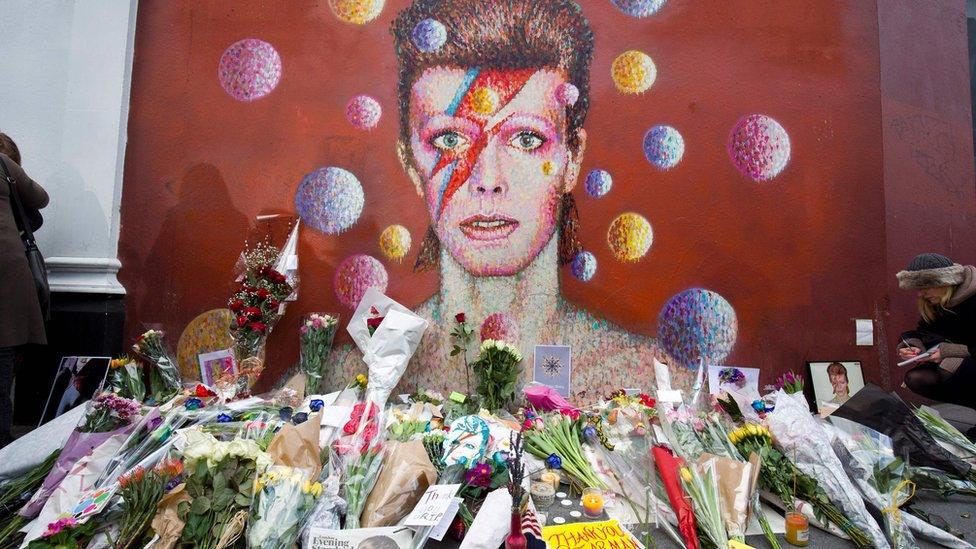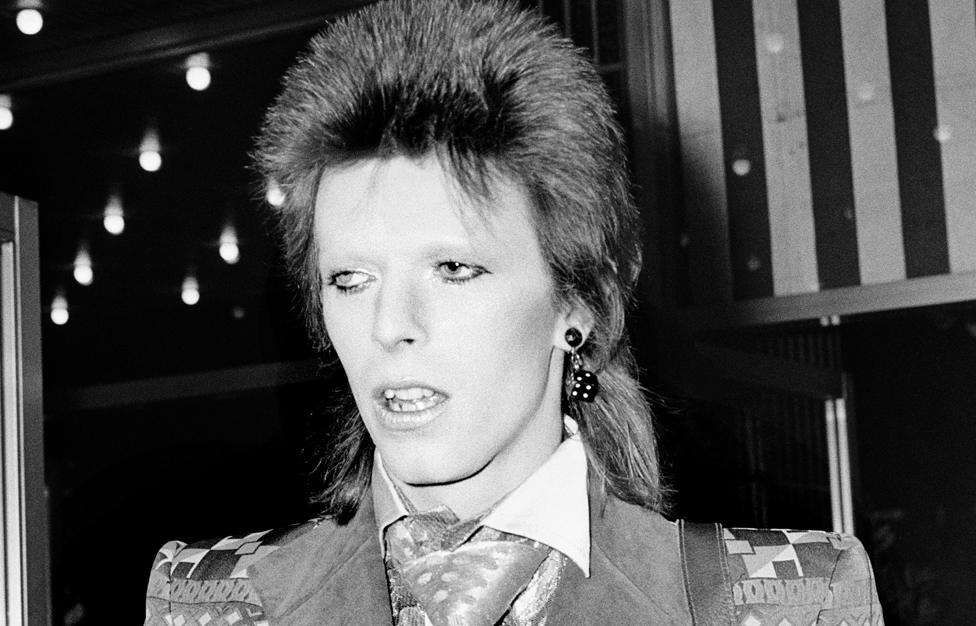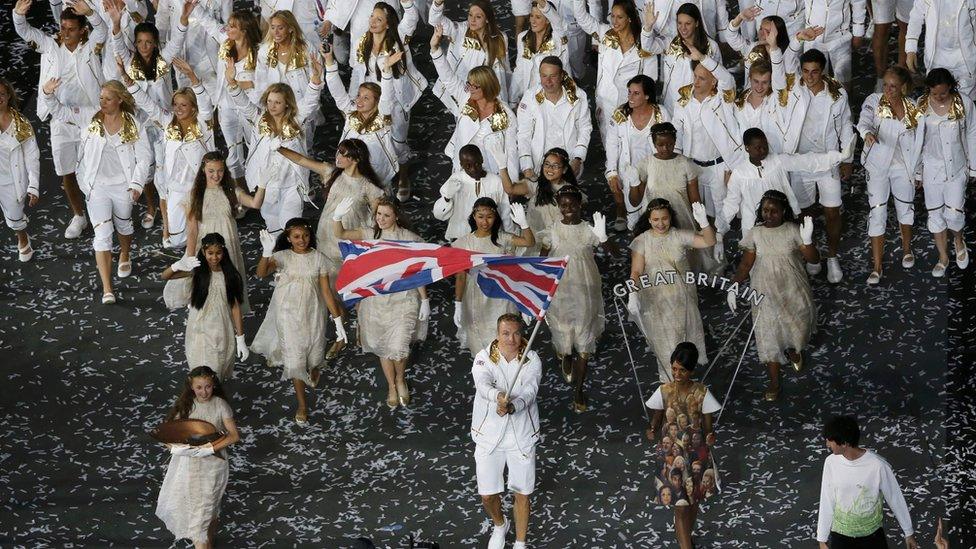Bowie: the creative force who changed Britain
- Published
- comments

The backlash starts now. A mountain of "why-oh-why"s is piling up, the collective cry of those for whom David Bowie was no more than a pretentious pop star, a weirdo with screwed-up eyes and screwed down hairdo.
There is an argument that the blanket coverage of his death has less to do with artistic merit and more to do with the teenage crush of a thousand baby-boomers who now find themselves sitting behind the desks of media power.
The bright young things of the late 60s and 70s were hugely influenced by the creative brilliance and intellectual challenge posed by Bowie. His poster was on my bedroom wall like millions of others and, inevitably, I tried (and failed) to ape his cool persona in giant platform shoes and mascara.
My parents' generation are puzzled by Bowie-mania, and there is another group of thirtysomethings who remain rather baffled by the attention devoted to his passing. Bowie was a master of self-promotion, they say, and he penned some good songs - but aren't you all going way over the top?
My answer is no.
I believe that the creative powerhouse that Britain has become is due, in part, to the fuel provided by David Bowie. He challenged clever kids in successive generations to aim high, to be ambitious and provocative, to take risks.
And not just in music - the tributes posted on social media come from product designers, architects, fashionistas, poets and potters. They write about Bowie's influence on them in their formative years. He made it cool to be young and smart.
But for many baby-boomers, he was also a companion when it came to getting older. He kept pushing and prodding us never to lose our urgency and vitality and creativity - right up to his death.

Bowie at the premiere of Live And Let Die, London 1973
And in remaining a thoughtful guide to my generation, he continues to inspire my children and their peers. The crowds gathered around the shrine that has appeared close to his former home in Brixton include many who are in their teens and early 20s.
He was a self-publicist with a gift for reinvention, of course. That's how you survive in an industry that worships the new. But he was also socially relevant - pushing at the boundaries of acceptability and taste, challenging conformity and orthodoxy.
His questioning of sexual norms, his satire of superficiality, his obsessive search for originality in a digital copy-and-paste world - these are vital ideas that have shaped modern Britain.
Britain has become far more tolerant of difference. And David Bowie helped us reach that place. Could Eddie izzard or Grayson Perry or Boy George have thrived without him? I doubt it.
Would gay rights, gender equality legislation or same-sex marriage have enjoyed the broad support they do today without Bowie's androgynous challenge all those years ago? I suspect not. He gave space to oddity… and made it cool.

In 2012, Team GB entered the Olympic stadium to the sound of Bowie's song Heroes
When the British team stepped into the Olympic stadium in 2012, it was Bowie who provided the nation's anthem, his song Heroes.
He is a hero to many because he changed the way the world sees Britain. And the way Britain sees itself.